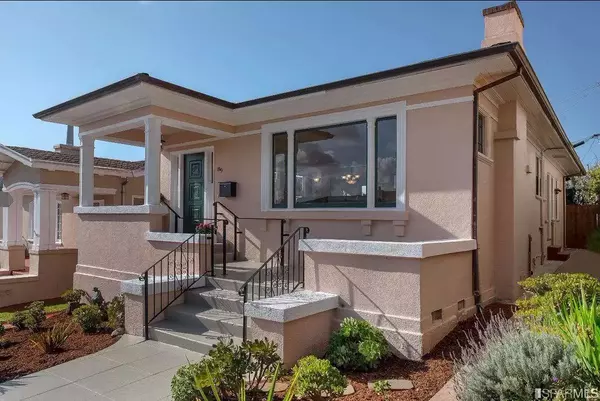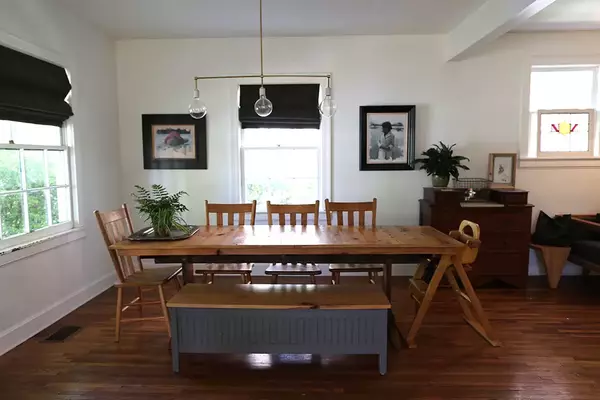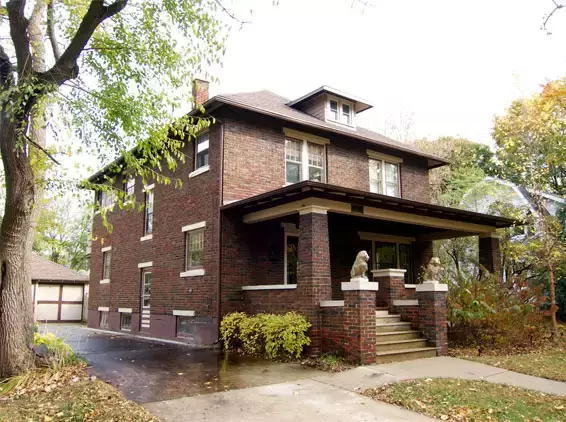
Foreclosures & Distressed Properties
In recent years, the real estate market has experienced a significant shift. While foreclosures and distressed properties were once a common sight, their numbers have dwindled considerably. This decline in foreclosures can be attributed to several factors, including a robust economy, low unemployment rates, and various government interventions aimed at keeping homeowners in their properties. However, with the current economic uncertainties and potential shifts in market dynamics, many are left wondering: will we see an increase in foreclosures soon?**Buyers: What You Need to Know**For buyers, the landscape of distressed properties presents both opportunities and challenges. With the current low levels of foreclosures, finding a bargain property is more difficult than it was during the housing crisis of 2008. However, savvy buyers can still find deals by keeping an eye on market trends and being prepared to act quickly when opportunities arise.One critical aspect for buyers to understand is the concept of short sales. A short sale occurs when a homeowner sells their property for less than what is owed on the mortgage. This typically happens when the homeowner is facing financial hardship and cannot keep up with mortgage payments. The lender must approve the sale since they will be taking a loss on the loan.**Short Sales: How Do They Work?**Short sales can be a win-win situation for both buyers and sellers. For sellers, it provides an alternative to foreclosure and can have less of an impact on their credit score. For buyers, short sales offer the chance to purchase a property at below-market value.However, buying a short sale property requires patience and diligence. The process involves several steps:1. **Seller’s Approval**: The seller must qualify for a short sale by demonstrating financial hardship to their lender.2. **Lender’s Approval**: Once an offer is made on the property, it must be submitted to the lender for approval. This step can take several weeks or even months.3. **Negotiation**: The lender may counteroffer or request additional information before approving the sale.4. **Closing**: Once all parties agree, the sale proceeds like any other real estate transaction.It’s important for buyers to work with experienced real estate agents who are familiar with short sales to navigate this complex process successfully.**Real Estate News & Market Update**The real estate market remains dynamic and ever-changing. As of now, foreclosure rates remain historically low due to various protective measures implemented during the COVID-19 pandemic, such as mortgage forbearance programs and eviction moratoriums. However, with these protections ending or being phased out, there is speculation that foreclosure rates may rise in the near future.Economic indicators such as rising interest rates and inflation could also impact homeowners' ability to keep up with mortgage payments, potentially leading to an increase in distressed properties entering the market.For investors and homebuyers alike, staying informed about these trends is crucial. Monitoring economic reports, understanding legislative changes affecting homeowners, and keeping an eye on local market conditions can provide valuable insights into future opportunities within the distressed property segment.In conclusion, while current foreclosure rates are low, potential shifts in economic conditions could lead to an increase in distressed properties on the market soon. Buyers interested in these opportunities should educate themselves about short sales and other aspects of purchasing distressed properties to capitalize on potential deals effectively. Staying updated with real estate news and market trends will be essential for making informed decisions in this evolving landscape.

I WANT A NEW HOME, I need to see my existing home.
**Navigating the Journey: Selling Your Existing Home to Buy a New One**The dream of moving into a new home is exhilarating, but the process of selling your current home while purchasing another can be daunting. Balancing these two significant transactions requires careful planning, informed decision-making, and often, the guidance of experienced professionals. Here’s how you can manage this complex yet rewarding journey.**Sellers: Setting the Stage for Success**As a seller, your first priority is to make your existing home as appealing as possible to potential buyers. Start by decluttering and depersonalizing your space to allow buyers to envision themselves living there. Small improvements like a fresh coat of paint or updated fixtures can make a big difference. Pricing your home correctly is crucial. Overpricing can lead to prolonged market time, while underpricing might leave money on the table. An experienced real estate broker can provide a comparative market analysis (CMA) to help you set a competitive and realistic price based on recent sales in your area.**Mortgage Matters: Financing Your Next Move**Understanding your mortgage options is essential when planning to sell and buy simultaneously. Start by consulting with a mortgage lender to get pre-approved for a loan on your new home. This will give you a clear idea of what you can afford and position you as a serious buyer.If you're relying on the proceeds from the sale of your current home to fund the purchase of your new one, consider bridge loans or home sale contingency clauses in your purchase offer. A bridge loan allows you to finance the down payment on your new home before selling your existing one, while a contingency clause ensures that you won't be obligated to buy unless your current home sells.**Market Update: Timing Is Everything**Real estate markets fluctuate based on various factors such as interest rates, economic conditions, and seasonal trends. Staying informed about current market conditions can help you time your sale and purchase more effectively.In a seller's market—where demand exceeds supply—you may sell your home quickly but face stiff competition when buying. Conversely, in a buyer's market—where supply exceeds demand—you might find it easier to purchase but harder to sell quickly at your desired price. An experienced broker can provide valuable insights into local market trends and advise on the best timing for both transactions.**Managing the Sale and Purchase Process**Successfully managing the sale of your existing home while purchasing a new one involves several coordinated steps:1. **Enlist an Experienced Broker:** A seasoned real estate broker will streamline the process by handling negotiations, paperwork, and timelines for both transactions.2. **Prepare Your Home for Sale:** As mentioned earlier, make necessary repairs and stage your home effectively.3. **Get Pre-Approved:** Secure pre-approval for a mortgage on your new home.4. **List Your Home:** Work with your broker to list your home at an optimal price.5. **Start House Hunting:** Begin searching for your new home while keeping an eye on offers coming in for your current property.6. **Coordinate Closing Dates:** Aim to synchronize closing dates to minimize transitional housing needs.7. **Plan Your Move:** Once both transactions are finalized, organize logistics for moving from one property to another.**Conclusion: A Smooth Transition Awaits**Selling an existing home while purchasing a new one is undoubtedly complex but far from impossible with proper planning and professional assistance. By enlisting an experienced broker, staying informed about mortgage options, understanding market conditions, and meticulously coordinating each step of the process, you can turn this dual transaction into a seamless transition towards enjoying life in your new dream home.Happy house hunting!

New Construction homes or Existing homes?
When it comes to purchasing a home, one of the primary decisions buyers face is whether to opt for new construction or an existing home. Both options have their unique advantages and challenges, making this choice highly personal and dependent on individual needs and preferences. In this blog, we’ll delve into the key considerations such as price, condition, updates, and upgrades, along with some current market insights to help you make an informed decision.### Price ConsiderationsOne of the first factors buyers typically consider is price. Generally speaking, new construction homes tend to be more expensive than existing homes. According to recent market data, the median price for new construction homes is about 20% higher compared to existing homes. This difference in cost can be attributed to several factors including modern amenities, energy-efficient systems, and contemporary designs that new homes offer.However, it's essential to remember that while the upfront cost of a new home may be higher, they often come with fewer immediate repair costs. New constructions are built according to the latest building codes and standards, meaning fewer unexpected expenses down the line.### Condition and MaintenanceExisting homes come with their own set of advantages and challenges regarding condition. Many older homes have unique architectural features and mature landscaping that can add charm and character. However, they may also require more maintenance and repairs. Buyers should budget for potential issues like outdated plumbing or electrical systems.In contrast, new construction homes usually come with warranties covering major systems and appliances. This can provide peace of mind knowing that you won’t likely face significant repair costs in the near future.### Updates & UpgradesOne of the most appealing aspects of new construction is customization. Buyers often have the option to choose finishes, fixtures, and sometimes even floor plans that suit their personal tastes. This level of customization can make your new home feel uniquely yours from day one.On the other hand, existing homes may require updates or renovations to meet your style preferences or functional needs. While this can be seen as a downside due to additional costs and effort, it also offers an opportunity for creativity and personalization.### The Role of a Broker in New ConstructionWhen considering a new construction home, enlisting the help of a real estate broker can be invaluable. A broker experienced in new construction can guide you through the complexities involved in buying directly from builders. They can help negotiate better terms, ensure all contractual obligations are met, and provide insights into various builders' reputations.### Market UpdateThe real estate market has seen dynamic changes over recent months. With interest rates fluctuating and inventory levels varying by region, staying updated on market trends is crucial for making an informed decision. As of now, there is a slight uptick in new construction projects aimed at meeting high buyer demand driven by low inventory in many areas. However, supply chain issues continue to affect construction timelines and costs. Consequently, some buyers might find existing homes more readily available or quicker to move into compared to waiting for a new build to be completed.### ConclusionChoosing between a new construction home or an existing home ultimately depends on your personal priorities—be it price sensitivity, desire for customization, or willingness to undertake renovations. Each option has its pros and cons that merit careful consideration.Whether you're leaning towards a brand-new build or an established property with history and character, having an experienced real estate broker by your side can make all the difference in navigating today's complex market landscape.Stay tuned for more real estate news and updates as we continue exploring topics that matter most to you!
Categories
Recent Posts










